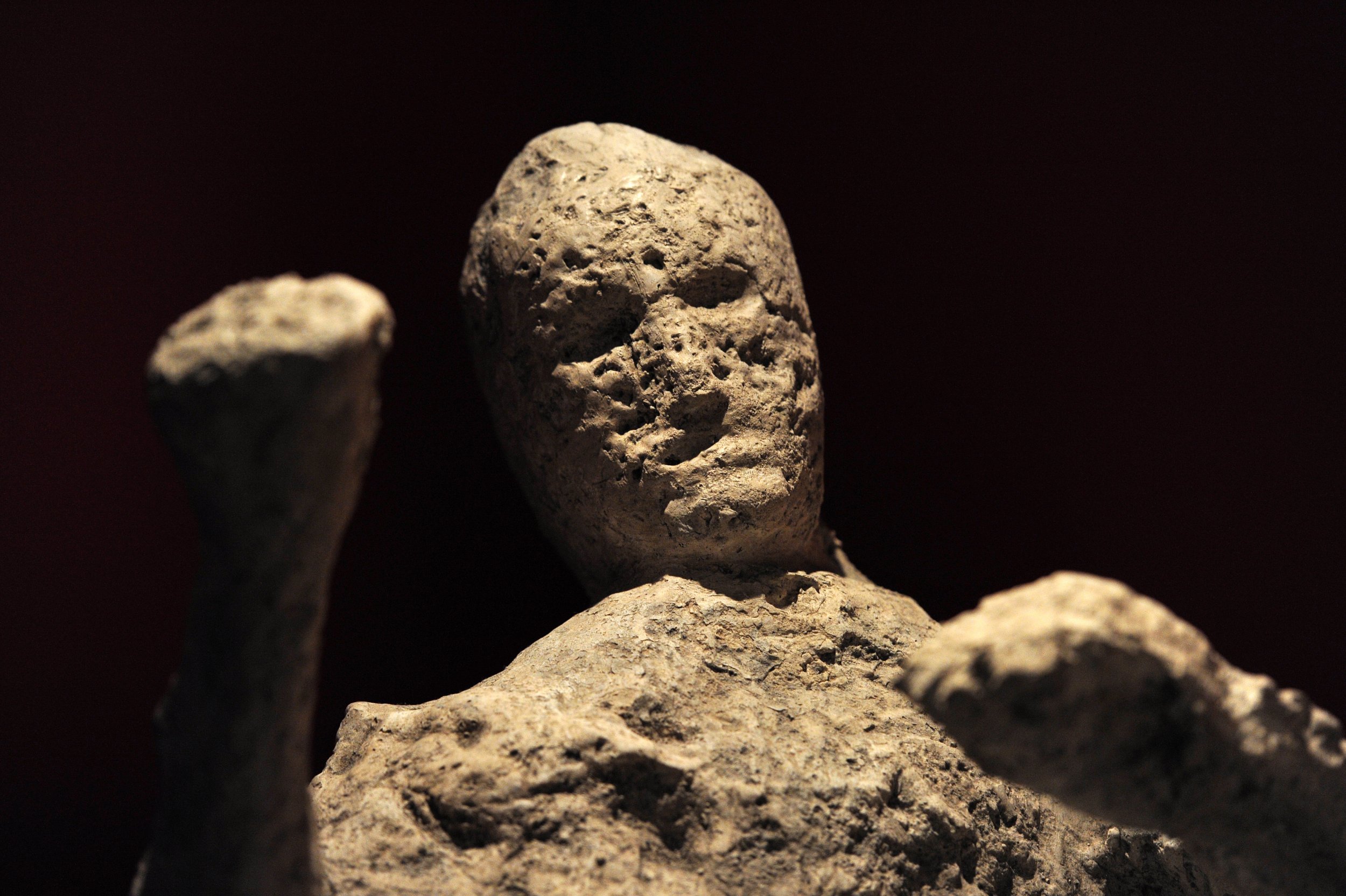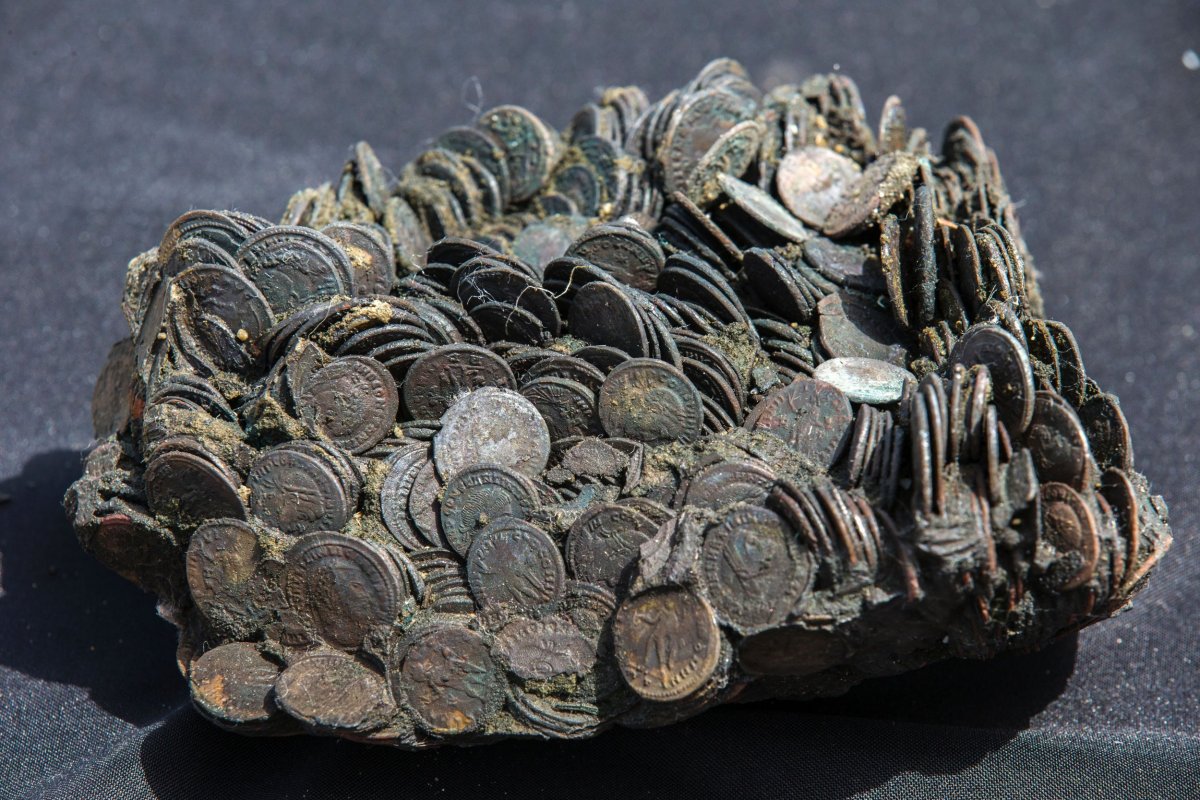
Update | Archaeological evidence of a Roman military encampment—including a cooking pot possibly containing the remains of a Roman soldier—was discovered at Legio near Tel Megiddo in northern Israel, Haaretz reports.
The camp reportedly dates to the second and third centuries. Its existence, according to Haaretz, provides evidence for the assumption that Galilee was the site of a major Roman military presence nearly two millennia ago.
The base was reportedly about 300 by 500 meters (900 by 1,640 feet). The excavation of the site, which took place from 2013 to 2017, was co-led by Yotam Tepper, an archaeologist at Haifa University in Israel, and carried out alongside the Israel Antiquities Authority.
Tepper told Newsweek he has been studying the region since 1998. In his other work in the region with the Israel Antiquities Authority, Tepper discovered a Christian prayer house dating back to the third century, which he says is the oldest Christian house of worship to be found in what is now Israel. (Papers detailing Tepper's work are available behind paywalls here.)
This particular archaeological dig provides a treasure trove of information about the Roman military and its presence in the region, as the Haaretz report details. Archaeologists also made some pretty remarkable finds in what were the military latrines. There, Haaretz reports, the archaeologists found coins, glass, animal bones and pottery.
"This is where much of the garbage of the camp inevitably ended up," Matthew Adams, co-director of the excavation and director of the W.F. Albright Institute in Jerusalem, told Haaretz.

Members of the dig also found a cave inside of the base. There, they found what appeared to be a cooking pot containing human remains, that, they conjecture, belonged to a Roman soldier. Tepper told Newsweek that the remains were identified as belonging to a 20-year-old man. Although he has come across this kind of burial practice in past work (including at a Roman cemetery), Jews, Samaritans, and Christians did not cremate their dead during the time of Roman rule.
"Cremation burials in cooking pots were a common practice among Roman soldiers at that time. We found this kind of burial all around the site," Tepper told Haaretz.
Past coverage by Haaretz details other findings of Roman ruins that provide pieces of physical materials to fill out historical accounts. Last year, divers found a Roman inscription from the time of the Bar Kochba revolt, also known as the Second Jewish Revolt, in which Jews rebelled—ultimately to no avail—against Roman rule between the years 132 and 135. Archaeologists also found what they believe to be signs of Jewish hideouts from an earlier, failed Jewish revolt in Jerusalem. At that site, archaeologists found evidence that Roman soldiers possibly tore up paving stones in attempts to hunt Jewish rebels hiding quite literally underground.
This was also far from the only interesting thing Tepper and his team found at this site. Tepper told Newsweek that they uncovered a "very nice piece of a stone table leg" decorated to look like a panther or lion's head. According to Tepper, the leg was probably part of a table for an officer or other high ranking member of the military. Little fragments like this, he says, are literal pieces of the western part of the Roman Empire that the army brought east with them, along with knowledge, techniques, and customs that made their mark on the lands they occupied.
These findings and others provide a richer portrait of the history of the region—readers will be hard pressed to find other accounts of pots full of human remains in what is now Israel.
This article has been updated with additional information about the dig.
Uncommon Knowledge
Newsweek is committed to challenging conventional wisdom and finding connections in the search for common ground.
Newsweek is committed to challenging conventional wisdom and finding connections in the search for common ground.
About the writer
Joseph Frankel is a science and health writer at Newsweek. He has previously worked for The Atlantic and WNYC.
To read how Newsweek uses AI as a newsroom tool, Click here.








